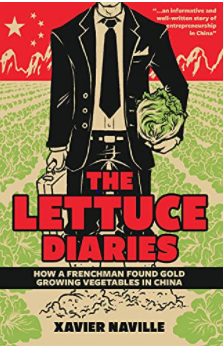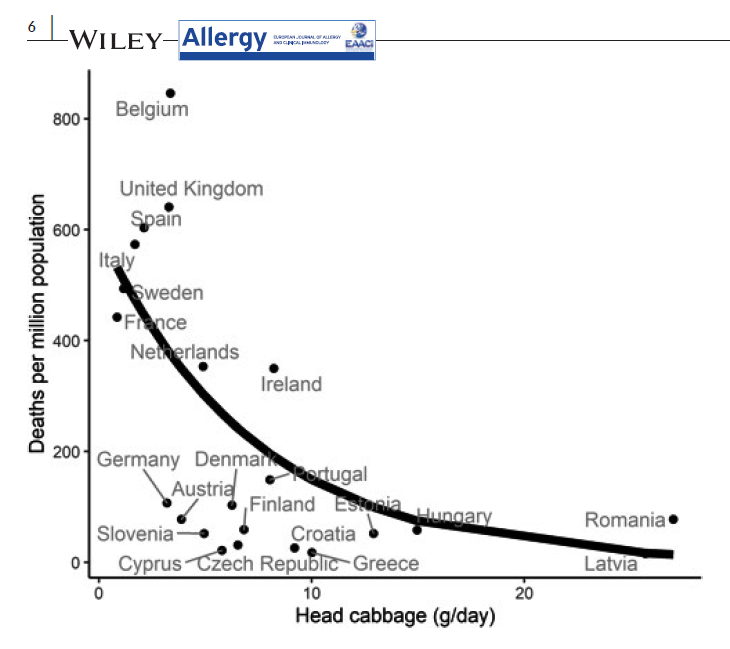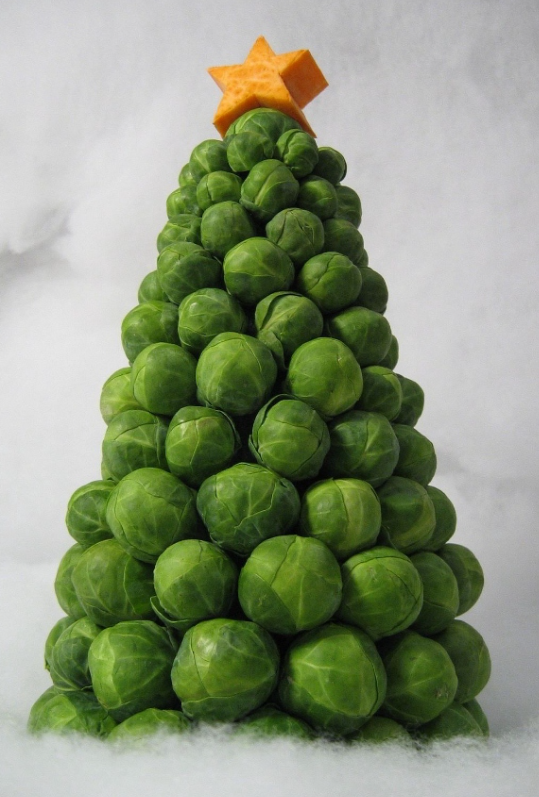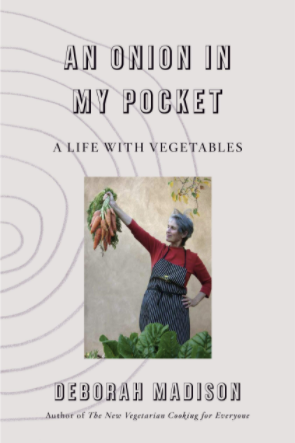Weekend reading: Selling salad in China
Xavier Naville. The Lettuce Diaries: How a Frenchman Found Gold Growing Vegetables in China. Earnshaw Books, 2021. 
The publicist for this quirky book sent it to me and I have to admit being charmed by it. The French author started out in international corporate food, managing canteens in 70 countries for the Compass Group and based in Paris.
At age 27, almost on a whim, he went to Shanghai to sell salads to the Chinese (who didn’t eat salads) and oversee the production of vegetables for KFC and other fast food places.
He was, to say the least, ignorant of Chinese language and culture but learned a lot during the twenty years or so he spent there.
His book is about how his naivete and uncertainty got in the way of getting small farmers to grow lettuce and other vegetables consistently and safely, and how he slowly and painfully learned to speak and write Chinese, and learn the importance of guanxi (personal relationships essential for getting anything done in China).
He is so modest, so hard on himself, and so likable that I wanted him to succeed—which he did, and quite well.
Among other things, his company produced bagged salads for Chinese supermarkets. Food safety maven that I am, I won’t even buy bagged salads in the U.S. His descriptions of small-scale food production are terrifying.
He reports no outbreaks due to his products, although he talks about plenty of others, including the melamine-in-infant-formula scandal predicted by the earlier melamine-in-pet-food scandal I wrote about in Pet Food Politics.
I liked his thoughtfulness about his experience.
All these years, I had viewed the microscopic farming plots as a barrier to the modernization of China’s agriculture. But after a few hours with my Chinese friends, I was beginning to see things differently. Where would all these seasonal foods come from if there were fewer farmers? Would there still be regional differences? If China follows the developmental path of the West, the number of farmers will shrink while operations increase in size. Farms will focus on scale and productivity, specializing in fewer crops, breeding the most productive ones and neglecting some that have a higher nutritional content but lower returns per acre. Is that really what Chinese consumers want?
…family farmers weren’t necessarily just an obstacle on China’s path toward modernization; they might actually be its cultural gatekeepers, protecting the local food industry and underpinning a renaissance of Chinese beliefs that will be key to the health of both the Chinese people and the safety of the foods they cherish. (p. 246)
Quirky? Definitely for a business book, but in a good way. I enjoyed reading it.
[The author is now a food business consultant in Oakland, CA].




